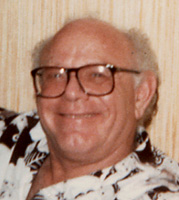|
Carleton Solloway
–
mathematician
|

|
"It is a wonderful experience to love what you do and be able to make a living at it."
|

|
| |
|
|
|
| |
How were you motivated to choose your particular field? |
| |
Some attributes are genetically inborn, such as a love of order, logical processes and the beauty of simplicity. I believe that even in my very early stages of life these qualities manifested themselves. It was only natural for me to love and excel in arithmetic processes, and later in the deeper more complex concepts of mathematics. As we are all aware, there is a very close connection between music and mathematics. Being born into an entire family of professional musicians it was only natural that I was drawn even more deeply into mathematics. In grade school I excelled in arithmetic, loved mathematical and logical puzzles, and I read prodigiously about mathematics and mathematicians. When I was in high school, algebra, plane and solid geometry and trigonometry were my favorite studies. With the aid of my solid geometry teacher I studied differential and integral calculus (long before these subjects were taught in high school).
It was inevitable that my interests extended to the other natural sciences – physics, chemistry, biology and the application of mathematics to them. At the same time I was fascinated by languages – Latin, German, Spanish, and French – and the logical structures inherent in them. I was also blessed with a very inquisitive mind and delved into many different fields of endeavor. I loved philosophy and philosophers. My musical education paralleled my academic pursuits from the time I was five. I studied piano, violin, and ultimately the cello. I was constantly amazed by the relations between music, mathematics and physics. I could have followed my family's examples and become a professional musician, but by the time I was 12 I knew I wanted to become a mathematician and even knew the school I would attend (Caltech). It never crossed my mind to apply to other schools or that I might not be accepted at Caltech. While there I also discovered that I loved to teach and had a natural flair for it. The many forces and experiences that shaped my life were deep and diverse, but I was always drawn back into mathematics as my first love and choice of a career. I have never regretted it. It is a wonderful experience to love what you do and be able to make a living at it.
|
|

|
| |
|
|
|
| |
What can you share about your creative process? |
| |

|
|
The creative process has many and diverse paths. Persistence is a virtue but so also is the ability to let your mind explore freely. Look at the problem from many different views including the unorthodox. Use your imagination freely. Sometimes the most tenuous of connections can lead to a productive approach. Back off occasionally and let your unconscious and subconscious take over. Many a time I have solved a problem in the middle of the night awaking from a seemingly sound sleep. Free association discussions with others is often helpful. Team approaches can sometimes be very useful (brainstorming). Always take a positive approach. Don't be negative and don't give up.
|
|
| |
|
|
|
| |
What ideas do you have for a future human community on Mars?
|
| |
There are of course the obvious, albeit useful, concepts such as:
1. Cultural events, e.g.: play (drama) groups, musical groups, opera groups, reading and discussion groups, art groups;
2. Game competitions, e.g.: chess and/or checkers, Scrabble® (3D), card games such as bridge, hearts, gin rummy and esoteric versions of these, e.g.: kriegspiel, partnership hearts, etc.;
3. Education and lecture series on a variety of subjects;
4. Engineering and scientific pursuits – most imprtant among these given the circumstances, being archaeology, anthropology, and astronomy (Mars should be a unique habitat for these);
5. Medical and biological (hydroponics) investigations;
6. Physical sports and competitions.
Most importantly, one might challenge the colony to design, develop and build expansion colonies in a variety of regions on Mars and develop the necessary infrastructure – communications, locomotion, habitations and government – to unify these outposts, to evolve some notions of personnel exchange within these outposts and the mother colony.
It goes without saying that such endeavors would require considerable resources, computers, etc. and constant communications with Earth in order to be even moderately successful.
|
|

|
|




